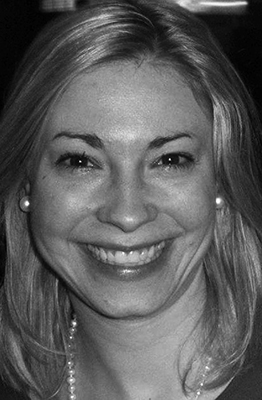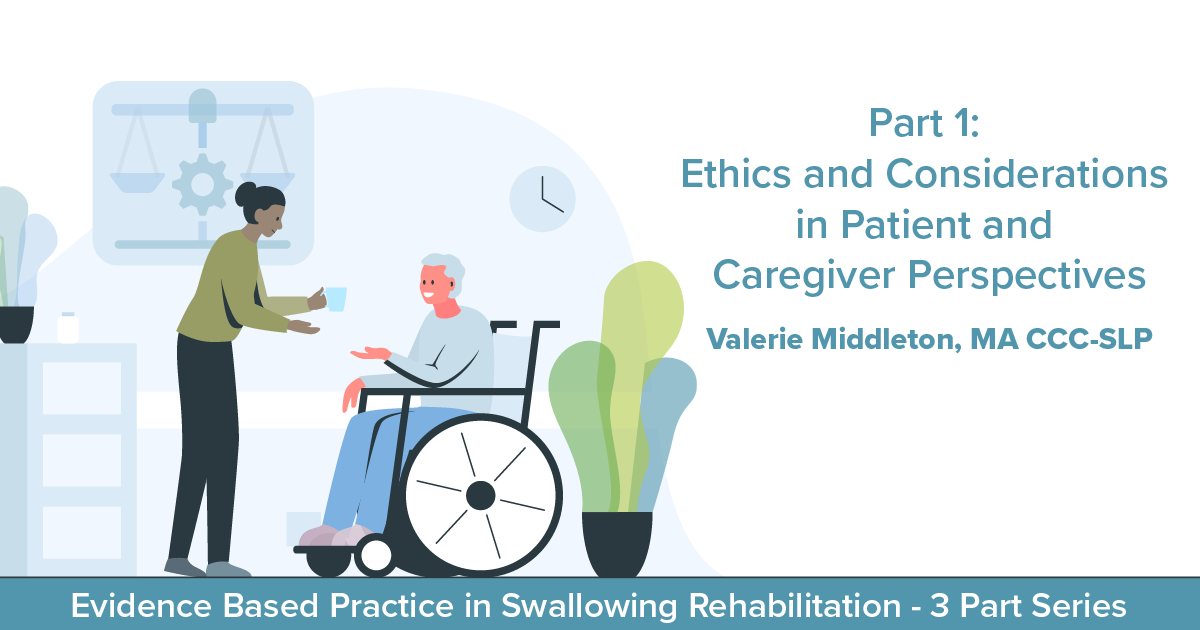Speech-language pathologists (SLPs) are commonly involved in the rehabilitation of patients presenting with cardiopulmonary disorders. Hospitalized patients diagnosed with respiratory diseases, Chronic Obstructive Pulmonary Disease (COPD), Chronic Heart Failure (CHF), and those with xerostomia are indicated as risk groups for development of oropharyngeal dysphagia. Additionally, patients who experience prolonged endotracheal intubation have been associated with the development of dysphagia (Malandraki et al., 2016).
Valerie Middleton, MA CCC-SLP

Recent Posts
Dysphagia Prevalence and Treatment in Cardiopulmonary and Airway Disorders
Topics: Dysphagia
Looking beyond Strength Training: The Importance of Motor Learning in Swallowing Rehabilitation
Strength training and repetition of motor activity alone is not thought to result in functional recovery where impaired motor performance is the baseline. We know this to be true in movements required for both speech and swallowing in our patients who experience ataxia, apraxia, and other motor disruptions. Encouraging a patient with dysphagia to simply “practice” a dysphagic swallow with no modification to this task, is unlikely to produce a desired effect (Huckabee & McCrae, 2014).
Topics: Dysphagia
Evidence Based Practice in Swallowing Rehabilitation - 3 Part Series (part 3)
Part 3: What about My Clinical Judgement?
We bring our EBP series discussion to a close with consideration of clinical expertise/expert opinion. This component of the triangle may be defined as “The knowledge, judgment, and critical reasoning acquired through [your] training and professional experiences” (ASHA, 2020).
Topics: Dysphagia
Evidence Based Practice in Swallowing Rehabilitation - 3 Part Series (part 2)
Part 2: Implementing Internal and External Evidence
We began our discussion on employing evidence-based practice (EBP) in swallowing rehabilitation during the spring newsletter, with careful consideration for upholding ethics in treatment and focusing on patient perspective. Let’s continue by delving deeper into incorporation of evidence in dysphagia therapy. ASHA defines the implementation of evidence as “The best available information gathered from the scientific literature (external evidence) and from data and observations collected on your individual client (internal evidence).” ASHA’s recommended EBP process includes the following steps: Frame the clinical question, gather evidence, assess the evidence, and make the clinical decision (ASHA 2020).
Topics: Dysphagia
Evidence Based Practice in Swallowing Rehabilitation - 3 Part Series
Not unique to the field of Speech-Language Pathology, integration of Evidence Based Practice (EBP) is a hot topic and is essential in ensuring we are practicing at the top of our profession. Let’s begin by reviewing the three characteristics comprising the EBP triangle as outlined by the National Joint Committee for the Needs of Persons with Disabilities (NJC): (a) clinical expertise/expert opinion, (b) external scientific evidence, and (c) the perspectives of individuals with severe disabilities and their families and friends to provide high-quality services reflecting the interests, values, needs, and choices of the individuals we serve (NJC, n.d.). Over the next few months, we will discuss each of these areas in more detail. Although patient value and perspective is listed last, we will address this first, as this is an area worth consistent reflection and application.
Topics: Dysphagia

